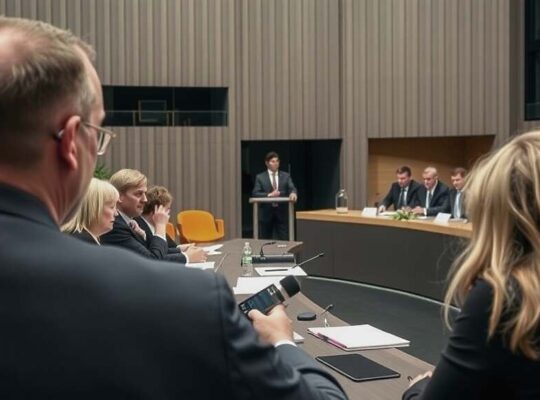The German craft sector is issuing a stark warning to the federal government, alleging a systemic neglect of the vital Mittelstand – the backbone of the nation’s economy. Jörg Dittrich, President of the Zentralverband des Deutschen Handwerks (ZDH), has publicly criticized the current administration, asserting that its actions demonstrate a failure to adequately address the growing challenges faced by small and medium-sized enterprises (SMEs).
Dittrich’s criticism centers on a perceived lack of comprehensive support, arguing that targeted assistance to specific industries is insufficient to alleviate the pervasive gloom gripping the German economy. He highlighted the botched implementation of promised electricity tax reductions as a prime example, pointing out that the exclusion of many energy-intensive SMEs, particularly those outside the manufacturing sector, created a deeply damaging “emotional shockwave” akin to the backlash against Economy Minister Robert Habeck’s controversial heating law.
The planned Mittelstand dialogue initiative, spearheaded by Economy Minister Katarina Reiche, has been dismissed as inadequate to address the escalating crisis. Dittrich cautioned that time is running out, noting a worrying increase in insolvencies and a “silent dying” of craft businesses struggling under mounting pressures. He emphasized the urgent need for tangible and immediate relief that reaches even the smallest operators.
Furthermore, Dittrich pointed to provisions within the existing coalition agreement that could be swiftly implemented to ease the burden, citing the repeal of the Sunday baking ban for bakers and the elimination of the mandatory bonding requirements as immediate possibilities. He also strongly condemned the planned corporate tax cuts scheduled for 2028, arguing that excluding partnerships – a common business structure for many SMEs – constitutes a significant oversight. The suggestion from within the Social Democratic Party (SPD) that partnerships could simply convert to limited liability companies (GmbHs) to qualify for the tax breaks was deemed unrealistic, impractical and culturally insensitive, potentially creating a two-tiered system that further disadvantages traditional business models.
The ZDH’s plea underscores a widening disconnect between government policy and the realities faced by the Mittelstand, raising serious questions about the Coalition’s ability to safeguard the long-term health and resilience of Germany’s vital small business sector and calling for a more inclusive and responsive approach to economic governance.












